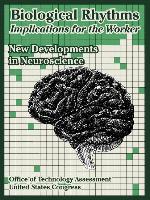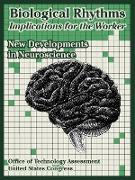- Start
- Biological Rhythms -- Implications for the Worker
Biological Rhythms -- Implications for the Worker
Angebote / Angebote:
Approximately 20 million Americans work some form of nonstandard work schedule. These schedules, which require that an individual work during nondaytime hours, noncontinuous hours, or for extended periods, are referred to as "shift work." Recent advances in the understanding of the biological rhythms of the body and their control by the brain indicate that shift work can disrupt these rhythms, with possible adverse consequences for the worker. This report is the third in a series of OTA studies being conducted under an assessment of "New Developments in Neuroscience." It was requested by the House Committees on Appropriations, Energy and Commerce, Science, Space, and Technology, Veterans Affairs, and the Senate Subcommittee on Science, Technology, and Space of the Committee on Commerce, Science, and Transportation. The report discusses biological rhythms: what they are, how they are controlled by the brain, and the role they play in regulating physiological and cognitive functions. The major focus of the report is the examination of the effects of nonstandard work hours on biological rhythms and how these effects can interact with other factors to affect the health, performance, and safety of workers. In addition, the report describes the Federal regulatory framework related to work hours and the current status of biological rhythm and shift work research. The report presents a range of options for congressional action related to the amount of research being conducted on these topics, the collection of relevant workplace statistical data, and the congressional role in ensuring the well-being of individuals engaged in nonstandard hours of work.
Folgt in ca. 10 Arbeitstagen

